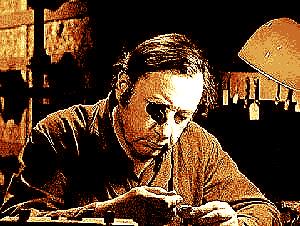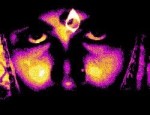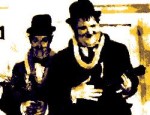Film Review
For his first full-length film, Bertrand Tavernier took his inspiration from a novel entitled
“L'Horloger d'Everton”, written by the popular Belgian writer Georges Simenon.
Although the novel was set in a provincial town in the United States, Tavernier realised
that it could easily be transposed to his home town of Lyons in south-east France.
He wrote the script with the support of Jean Aurenche and Pierre Bost, two screenwriters
who were very prolific in the 1940s and 1950s, but who were pilloried by the New Wave
directors of the 1960s. Tavernier collaborated with Aurenche and Bost on several
of his subsequent films and would later make a film about Aurenche's war time experiences
Laissez-passer (2002)
For his leading man, Tavernier was certain from the outset that Philippe Noiret should
take the part. Noiret had appeared in films since the 1950s, usually in supporting
roles, and had yet to achieve genuine stardom. This and subsequent collaborations
with Tavernier would help to establish him as one of France's leading actors and something
of a national institution. When François Perrier turned down the part of
Inspector Guilboud, Tavernier approached Jean Rochefort (allegedly giving him just one
hour to read the script and decide whether he wanted the part or not). Rochefort
accepted and, as it turns out, his pairing with Noiret proved to be a stroke of genius.
Both men would play very similar characters in the film (solitary individuals, both stuck
in a professional rut, each with domestic problems) but having very different outlooks
on life (Noiret is contented, Rochefort cynical and slightly bitter). It is the
developing relationship between these two characters which provides the main focus for
the film. This device also cleverly allows us to get under the skin of the watchmaker,
magnificently portrayed by Noiret in one of his most introspective and moving performances.
From the start, Tavernier wanted the film to be set entirely in Lyons and to show as much
of his beloved hometown as he could. He turned down a lucrative offer from his producer
to shoot the interiors in Paris and imposed a disciplined schedule to ensure the location
filming was completed as planned. To that end, he was well-served by cinematographer
Pierre-William Glenn, whose beautiful camerawork presents an affectionate, slightly romanticised
view of the French city, but which gives the film a sombre, typically Simonon-esque mood.
Whilst
L'Horloger de Saint-Paul is primarily about the relationship between a father
and his son, Tavernier skilfully manages to bring in wider political concerns. Influenced
by the events of May 1968, the writer/director presages the increasing mood of disillusionment
of the French people with mainstream political parties and the traditional institutions
which would become more apparent towards the end of the decade. The film is in some
respects an early version of the neo-polar, the kind of crime drama which became more
noticeable in France in the late 1970s and early 1980s, in which the establishment (represented
by the police and the legal system) were deemed to be more of a problem for society than
the criminals they dealt with.
L'Horloger de Saint-Paul was both a commercial and critical success for Tavernier.
It won him the prestigious Silver Bear award at the Berlin film festival in 1974 and the
Prix Louis-Delluc in 1973. Tavernier could not have hoped for a better start in
his film-making career, and within a decade, after a number of internationally acclaimed
successes, he would become widely regarded as one of the most respected and talented directors
of his generation.
© James Travers 2003
The above content is owned by frenchfilms.org and must not be copied.
Next Bertrand Tavernier film:
Que la fête commence... (1975)
Film Synopsis
In the Saint-Paul district of Lyons, a middle-aged watchmaker, Michel Descombes, leads
a peaceful and contented bachelor existence. He lives with his teenage son, Bernard,
whom he brought up alone after his wife walked out on him many years ago. Michel's
well-ordered life suddenly falls apart when, one day, he receives an unexpected visit
from the police. He is informed that his son has killed a night watchman at a factory,
before going on the run with a young woman. As the police track his son, Michel
struggles to come to terms with the terrible news and realises that he knew far less about
his son than he thought...
© James Travers
The above content is owned by frenchfilms.org and must not be copied.



